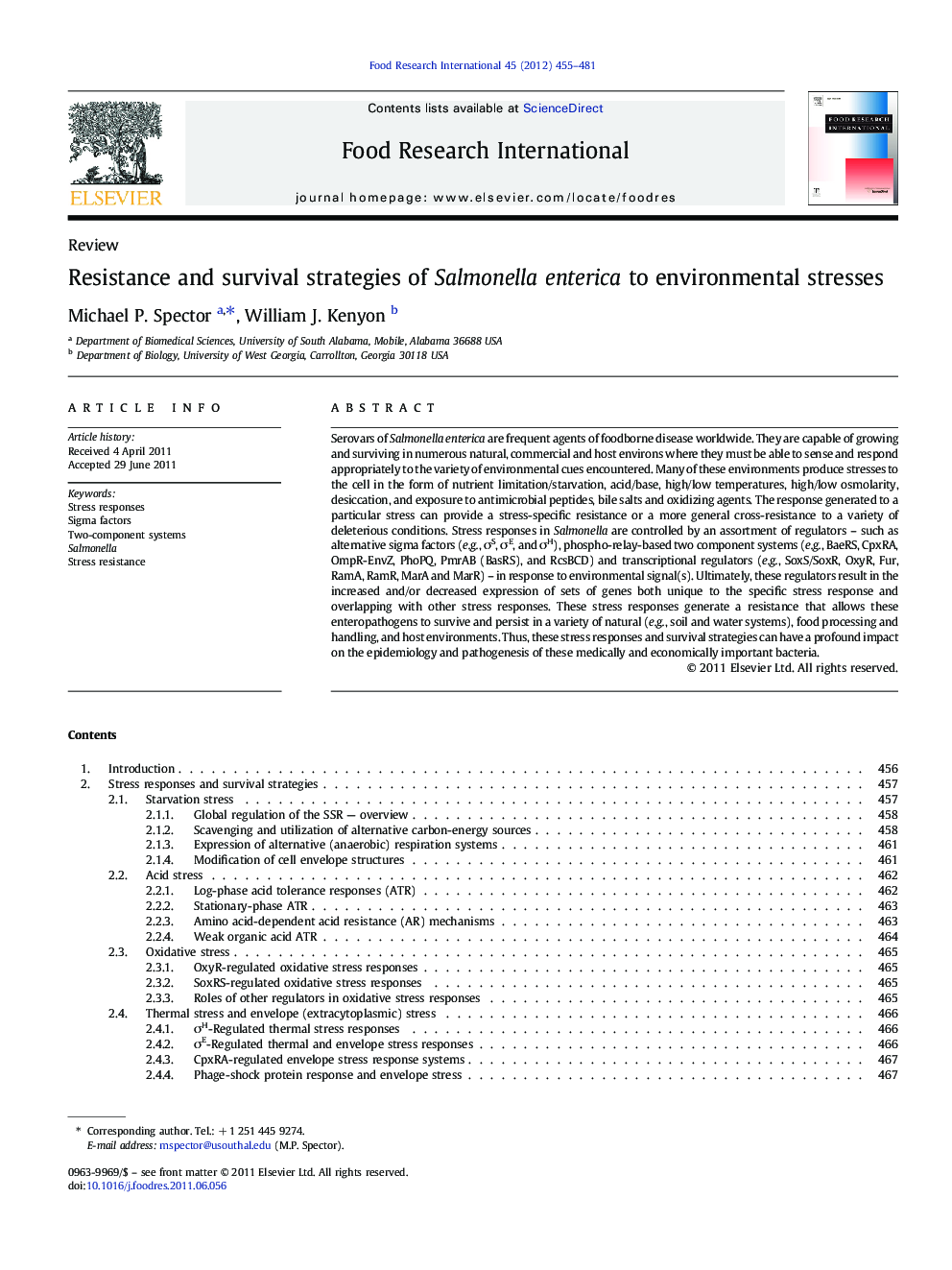| Article ID | Journal | Published Year | Pages | File Type |
|---|---|---|---|---|
| 4561698 | Food Research International | 2012 | 27 Pages |
Serovars of Salmonella enterica are frequent agents of foodborne disease worldwide. They are capable of growing and surviving in numerous natural, commercial and host environs where they must be able to sense and respond appropriately to the variety of environmental cues encountered. Many of these environments produce stresses to the cell in the form of nutrient limitation/starvation, acid/base, high/low temperatures, high/low osmolarity, desiccation, and exposure to antimicrobial peptides, bile salts and oxidizing agents. The response generated to a particular stress can provide a stress-specific resistance or a more general cross-resistance to a variety of deleterious conditions. Stress responses in Salmonella are controlled by an assortment of regulators – such as alternative sigma factors (e.g., σS, σE, and σH), phospho-relay-based two component systems (e.g., BaeRS, CpxRA, OmpR-EnvZ, PhoPQ, PmrAB (BasRS), and RcsBCD) and transcriptional regulators (e.g., SoxS/SoxR, OxyR, Fur, RamA, RamR, MarA and MarR) – in response to environmental signal(s). Ultimately, these regulators result in the increased and/or decreased expression of sets of genes both unique to the specific stress response and overlapping with other stress responses. These stress responses generate a resistance that allows these enteropathogens to survive and persist in a variety of natural (e.g., soil and water systems), food processing and handling, and host environments. Thus, these stress responses and survival strategies can have a profound impact on the epidemiology and pathogenesis of these medically and economically important bacteria.
► This review presents a detailed overview of the current literature on stress responses in Salmonella enterica. ► Salmonella stress responses are correlated with survival in commercial environments. ► Salmonella stress responses are correlated with their survival and virulence in host organisms. ► Models for the key regulators of stress responses in Salmonella are presented.
